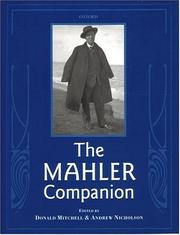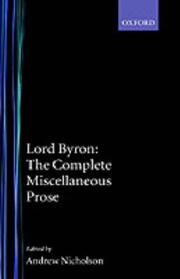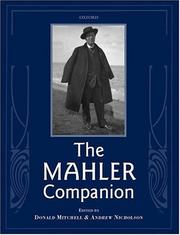| Listing 1 - 10 of 12 | << page >> |
Sort by
|
Book
ISBN: 9780231149860 9780231526425 0231149867 0231526423 1282872419 9786612872419 9781282872417 6612872411 0231149875 Year: 2010 Publisher: New York, NY
Abstract | Keywords | Export | Availability | Bookmark
 Loading...
Loading...Choose an application
- Reference Manager
- EndNote
- RefWorks (Direct export to RefWorks)
Some postcolonial theorists argue that the idea of a single system of belief known as "Hinduism" is a creation of nineteenth-century British imperialists. Andrew J. Nicholson introduces another perspective: although a unified Hindu identity is not as ancient as some Hindus claim, it has its roots in innovations within South Asian philosophy from the fourteenth to seventeenth centuries. During this time, thinkers treated the philosophies of Vedanta, Samkhya, and Yoga, along with the worshippers of Visnu, Siva, and Sakti, as belonging to a single system of belief and practice. Instead of seeing such groups as separate and contradictory, they re-envisioned them as separate rivers leading to the ocean of Brahman, the ultimate reality.Drawing on the writings of philosophers from late medieval and early modern traditions, including Vijnanabhiksu, Madhava, and Madhusudana Sarasvati, Nicholson shows how influential thinkers portrayed Vedanta philosophy as the ultimate unifier of diverse belief systems. This project paved the way for the work of later Hindu reformers, such as Vivekananda, Radhakrishnan, and Gandhi, whose teachings promoted the notion that all world religions belong to a single spiritual unity. In his study, Nicholson also critiques the way in which Eurocentric conceptslike monism and dualism, idealism and realism, theism and atheism, and orthodoxy and heterodoxyhave come to dominate modern discourses on Indian philosophy.
Hinduism --- -294.5 --- 294.5 Hindoeïsme--(in strikte zin) --- 294.5 Hindoeïsme:--verder in te delen zoals 291.1/.8 --- Hindoeïsme--(in strikte zin) --- Hindoeïsme:--verder in te delen zoals 291.1/.8 --- Religions --- Brahmanism --- History. --- India --- Intellectual life. --- Hinduism - History. --- Hinduism -- History. --- India - Intellectual life. --- India -- Intellectual life. --- 294.5 --- History --- Intellectual life --- Hinduism - History --- India - Intellectual life
Digital
ISBN: 9780231526425 9780231149877 Year: 2010 Publisher: New York, N.Y. Columbia University Press
Abstract | Keywords | Export | Availability | Bookmark
 Loading...
Loading...Choose an application
- Reference Manager
- EndNote
- RefWorks (Direct export to RefWorks)

ISBN: 0198163762 Year: 1999 Publisher: Oxford : Oxford university press,
Abstract | Keywords | Export | Availability | Bookmark
 Loading...
Loading...Choose an application
- Reference Manager
- EndNote
- RefWorks (Direct export to RefWorks)
Book
ISBN: 1457197138 188563546X 1885635451 9781885635464 9781885635457 9781885635457 Year: 2015 Publisher: Fort Collins, Colorado
Abstract | Keywords | Export | Availability | Bookmark
 Loading...
Loading...Choose an application
- Reference Manager
- EndNote
- RefWorks (Direct export to RefWorks)
"Opening the space between the ordinary and the visionary, the poems in A Lamp Brighter than Foxfire uncover an intimate relationship with the world around them, from Las Vegas to Italy to the American Midwest. From a lime glowing in an orchard to a miraculous childhood attempt at levitation, Andrew S. Nicholson's poems ground themselves in the commonplace and leap for the luminous. Central to this collection are poems that retell stories of Jacob from the Old Testament, relocated behind casinos, glimpsed in miniature on kitchen floors, and heard speaking in a moment of decay. Through these retellings, Nicholson examines the creation of self, family relationships, and a generative sense of the divine"-- ""In Andrew S. Nicholson's A Lamp Brighter than Foxfire, what is most alive is color, that which gives itself freely, generously: 'Follow the hopeful as they green the day' ('My Garage Fills with an Ever-Increasing Number of Dandelions'). Threaded throughout with Genesis, wherein Jacob wrestles an angel, this gorgeous debut collection builds a ladder firmly rooted here: in sun and earth; in varying and multiple shades of orange; in trials of father and son; in books and paintings; in abandoned casinos; in countries far from home; and/or in the sound of a door closing. Nicholson's poems come from a man standing by himself, in what George Oppen called the 'shipwreck of the singular,' which includes everybody. I'm moved by the luminous generosity, the moral clarity of this work. A Lamp Brighter than Foxfire is news that will stay news." --Claudia Keelan, author of The Devotion Field, Missing Her, and O, Heart "'Who doesn't nurse a secret love?' asks Andrew S. Nicholson in visionary poems that reveal secret worlds cradled inside this one. Whether considering the casinos of Las Vegas, a fresco in Pompeii, or scenes from the Hebrew Bible, the poet endures one of desire's more fraught paradoxes: its unchanging ability to bring change, to turn the known into the unknown. These poems bravely attend to such transformations the way Jacob--the book's patron saint--wrestles with the angel, 'lifting all the flesh / that he can lose.' I admire this poet who knows that blessing doesn't arrive without loss, who remembers 'I was loved once. / Beneath that love, a kindness took root.' The same sweet feeling lingers long after this book is closed. Dear reader: savor it." --Brian Teare "Andrew S. Nicholson's A Lamp Brighter than Foxfire is a gorgeous book. His graceful, playful poems enchant us ('I try to make out the stranger's face, but he's shrinking: / a melting gray blur, an ever-smaller thorn.') and transform us ('Sink into the bathwater, any way is a way / to journey toward that joining'). Nicholson has become one of the great poets of a new and radical kind of pastoral." --Joseph LeaseOpening the space between the ordinary and the visionary, the poems in A Lamp Brighter than Foxfire uncover an intimate relationship with the world, from Las Vegas to Italy to the American Midwest. From a lime glowing in an orchard to a miraculous childhood attempt at levitation, Andrew S. Nicholson's poems ground themselves in the commonplace and leap for the luminous. Central to this collection are poems that retell stories of Jacob from the Old Testament, relocated behind casinos, glimpsed in miniature on kitchen floors, and heard speaking in a moment of decay. Through these retellings, Nicholson examines the creation of self, family relationships, and a generative sense of the divine"--

Abstract | Keywords | Export | Availability | Bookmark
 Loading...
Loading...Choose an application
- Reference Manager
- EndNote
- RefWorks (Direct export to RefWorks)

ISBN: 0199249652 Year: 2002 Publisher: Oxford Oxford university press
Abstract | Keywords | Export | Availability | Bookmark
 Loading...
Loading...Choose an application
- Reference Manager
- EndNote
- RefWorks (Direct export to RefWorks)
Book
ISBN: 1523112816 0873354613 9781523112814 9780873354615 9780873353533 Year: 2017 Publisher: Englewood, Colorado
Abstract | Keywords | Export | Availability | Bookmark
 Loading...
Loading...Choose an application
- Reference Manager
- EndNote
- RefWorks (Direct export to RefWorks)
Abandoned mined lands reclamation. --- Mine drainage. --- Mine water. --- Geochemical modeling. --- Geochemical reaction modeling --- Modeling, Geochemical --- Reaction modeling, Geochemical --- Geological modeling --- Water in mines --- Groundwater --- Drainage --- Mined land reclamation --- Mining sites restoration --- Reclamation of abandoned mined lands --- Reclamation of mined land --- Restoration of mining sites --- Strip-mined land reclamation --- Surface-mined land reclamation --- Reclamation of land
Book
ISBN: 144225503X 1442255048 1442255056 Year: 2015 Publisher: Rowman & Littlefield Publishers
Abstract | Keywords | Export | Availability | Bookmark
 Loading...
Loading...Choose an application
- Reference Manager
- EndNote
- RefWorks (Direct export to RefWorks)
Book
ISBN: 9781442255036 9781442255043 9781442255050 Year: 2015 Publisher: Lanham, Md Rowman & Littlefield
Abstract | Keywords | Export | Availability | Bookmark
 Loading...
Loading...Choose an application
- Reference Manager
- EndNote
- RefWorks (Direct export to RefWorks)
Information retrieval --- Library automation --- Information systems
Book
ISBN: 1438451024 9781438451022 9781438451015 1438451016 Year: 2014 Publisher: Albany, New York : State University of New York Press,
Abstract | Keywords | Export | Availability | Bookmark
 Loading...
Loading...Choose an application
- Reference Manager
- EndNote
- RefWorks (Direct export to RefWorks)
While the Bhagavad Gītā is an acknowledged treasure of world spiritual literature, few people know a parallel text, theĪśvara Gītā. This lesser-known work is also dedicated to a god, but in this case it is Śiva, rather than Kṛṣṇa, who is depicted as the omniscient creator of the world. Andrew J. Nicholson's Lord Śiva's Song makes this text available in English in an accessible new translation. A work of both poetry and philosophy, the Īśvara Gītā builds on the insights of Patañjali's Yoga Sūtra and foreshadows later developments in tantric yoga. It deals with the pluralistic religious environment of early medieval India through an exploration of the relationship between the gods Śiva and Viṣṇu. The work condemns sectarianism and violence and provides a strategy for accommodating conflicting religious claims in its own day and in our own.
| Listing 1 - 10 of 12 | << page >> |
Sort by
|

 Search
Search Feedback
Feedback About UniCat
About UniCat  Help
Help News
News